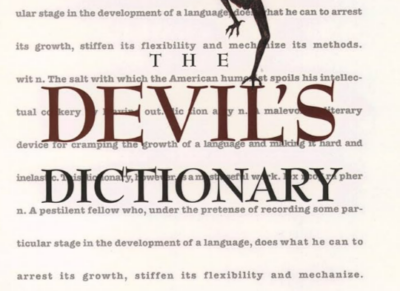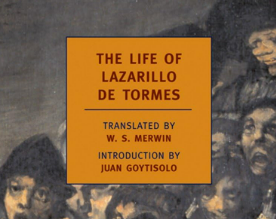91 Results with the "Satire" genre
Adventure Fiction (1164)
Biography (435)
Business & Finance (1)
Children's Literature (124)
Comics (6)
Culture (51)
Drama (123)
Dystopian (29)
Fable (86)
Fantasy (1132)
Fantasy (203)
Fiction (1010)
Finance (1)
Gothic Fiction (12)
Historical Fiction (615)
History (122)
Horror (56)
Lifestyle (36)
Literary (404)
Literary Fiction (207)
Memoir (113)
Mystery (422)
Non-fiction (87)
Novel (549)
Paranormal Fiction (96)
Philosophical (182)
Philosophy (45)
Poetry (249)
Political Fiction (14)
Politics (42)
Practical (32)
Psychological (4)
Psychological Thriller (108)
Relationship (6)
Romance Novel (716)
Romantic Melodrama (14)
Science (46)
Science Fiction (345)
Self-help (68)
Society (65)
Society (2)
Spiritual Growth (1)
story (2)
Thriller (704)
True Crime (56)
view (11)
Women's Fiction (2)
Young Adult (233)
-
Chapter
Chapter IV — Crome yellow
 Chapter IV begins with Denis experiencing a morning of quiet indecision, his mood shaped by small choices that feel disproportionately important. Faced with a choice between black and white shoes, he examines himself in the mirror with exaggerated care. Though well-dressed in patent leather, he remains unconvinced by his own reflection—both proud and self-critical. This duality echoes through his behavior as he descends to breakfast, where he finds Jenny already present. Their interaction is fragmented,…
Chapter IV begins with Denis experiencing a morning of quiet indecision, his mood shaped by small choices that feel disproportionately important. Faced with a choice between black and white shoes, he examines himself in the mirror with exaggerated care. Though well-dressed in patent leather, he remains unconvinced by his own reflection—both proud and self-critical. This duality echoes through his behavior as he descends to breakfast, where he finds Jenny already present. Their interaction is fragmented,…-
141.2 K • Ongoing
-
-
Chapter
My Seventh Stage
 My Seventh Stage begins as two journeys are set into motion—one by rail, the other by post. As autumn sunlight bathes the English countryside in warmth, Sigismund Zaluski departs from the peaceful town of Muddleton, answering an unexpected summons from his uncle in Russia. Though the visit is intended to be brief—just a fortnight—he leaves behind his belongings and a tender promise to Gertrude, his fiancée, to return soon. Simultaneously, a letter penned in idle malice—full of falsehoods—makes…
My Seventh Stage begins as two journeys are set into motion—one by rail, the other by post. As autumn sunlight bathes the English countryside in warmth, Sigismund Zaluski departs from the peaceful town of Muddleton, answering an unexpected summons from his uncle in Russia. Though the visit is intended to be brief—just a fortnight—he leaves behind his belongings and a tender promise to Gertrude, his fiancée, to return soon. Simultaneously, a letter penned in idle malice—full of falsehoods—makes…-
33.6 K • Ongoing
-
-
Chapter
Chapter E
 Chapter E opens with a humorous yet insightful look at Eating, defined by Bierce as the successful coordination of many bodily functions, distinguishing between mere consumption and the true enjoyment of a meal. This contrast highlights how the physical act of nourishment often lacks the pleasure associated with fine dining. Through a witty anecdote about the gastronome Brillat-Savarin, Bierce sets the tone for his exploration of ordinary acts, revealing their deeper cultural and emotional layers. The…
Chapter E opens with a humorous yet insightful look at Eating, defined by Bierce as the successful coordination of many bodily functions, distinguishing between mere consumption and the true enjoyment of a meal. This contrast highlights how the physical act of nourishment often lacks the pleasure associated with fine dining. Through a witty anecdote about the gastronome Brillat-Savarin, Bierce sets the tone for his exploration of ordinary acts, revealing their deeper cultural and emotional layers. The…-
82.1 K • Ongoing
-
-
Chapter
Chapter XVI — Crome yellow
 Chapter XVI begins in a quiet room where the mood has shifted—dinner is over, the women have withdrawn, and the port is making its rounds. A different kind of conversation takes shape, led by Mr. Scogan, whose mind always seems to be operating a layer above the rest. His tone is light but laced with the gravity of deeper thought, drawing the curiosity of Gombauld. Scogan, amused by his internal game, reveals that he’s been mentally matching each of the men present with one of the six early Roman…
Chapter XVI begins in a quiet room where the mood has shifted—dinner is over, the women have withdrawn, and the port is making its rounds. A different kind of conversation takes shape, led by Mr. Scogan, whose mind always seems to be operating a layer above the rest. His tone is light but laced with the gravity of deeper thought, drawing the curiosity of Gombauld. Scogan, amused by his internal game, reveals that he’s been mentally matching each of the men present with one of the six early Roman…-
141.2 K • Ongoing
-
-
 Chapter I: Where Lazaro Tells about How He Left Toledo to Go to the War of Algiers opens with Lazaro in an enviable position. In Toledo, he had a job that brought stability, fine clothes, and the appearance of respectability. Yet the call of adventure stirred something deeper in him—a wish to follow the legacy of his father and prove his worth in a more daring way. That desire, mixed with ambition, pushed him to volunteer for the fleet bound for Algiers. Before setting off, he ensured his family was…
Chapter I: Where Lazaro Tells about How He Left Toledo to Go to the War of Algiers opens with Lazaro in an enviable position. In Toledo, he had a job that brought stability, fine clothes, and the appearance of respectability. Yet the call of adventure stirred something deeper in him—a wish to follow the legacy of his father and prove his worth in a more daring way. That desire, mixed with ambition, pushed him to volunteer for the fleet bound for Algiers. Before setting off, he ensured his family was…-
108.4 K • Ongoing
-
-
Chapter
Chapter P
 Chapter P opens with Bierce’s treatment of Pain, which he describes not merely as a physical sensation but as a reminder of life’s imperfection. It is framed not as something to avoid, but something that teaches—unwanted yet often more honest than pleasure. Bierce argues that pain, unlike happiness, demands attention and shapes behavior. In his view, discomfort is more instructive than joy, serving as a sobering influence on human pride. Through this, pain is elevated from nuisance to necessary…
Chapter P opens with Bierce’s treatment of Pain, which he describes not merely as a physical sensation but as a reminder of life’s imperfection. It is framed not as something to avoid, but something that teaches—unwanted yet often more honest than pleasure. Bierce argues that pain, unlike happiness, demands attention and shapes behavior. In his view, discomfort is more instructive than joy, serving as a sobering influence on human pride. Through this, pain is elevated from nuisance to necessary…-
82.1 K • Ongoing
-
-
Chapter
Chapter XXVII — Crome yellow
 Chapter XXVII begins with an absurd yet magnetic performance as Mr. Scogan takes on his theatrical alter ego, “Sesostris, the Sorceress of Ecbatana.” Draped in flamboyant robes and heavy with mock mysticism, he draws a crowd eager for entertainment, not enlightenment. One by one, the guests offer their palms and receive cryptic fates—some grave, others comically vague. The sorceress performs with dramatic gravity, her voice thick with prophetic flair, turning every word into a spectacle. Denis,…
Chapter XXVII begins with an absurd yet magnetic performance as Mr. Scogan takes on his theatrical alter ego, “Sesostris, the Sorceress of Ecbatana.” Draped in flamboyant robes and heavy with mock mysticism, he draws a crowd eager for entertainment, not enlightenment. One by one, the guests offer their palms and receive cryptic fates—some grave, others comically vague. The sorceress performs with dramatic gravity, her voice thick with prophetic flair, turning every word into a spectacle. Denis,…-
141.2 K • Ongoing
-
-
 Chapter XII: What Happened to Lazaro in an Inn Three Miles outside of Valladolid opens with Lazaro moving away from Madrid with a rare sense of freedom in his step. He carries with him a substantial sum—two hundred silver coins and profits from a sold diamond band—and feels, for once, unburdened by past servitude. On his journey, he finds himself among gypsies and watches their daily rhythms with fascination. Despite their reputation, they exhibit a kind of liberty few others enjoy, wandering without…
Chapter XII: What Happened to Lazaro in an Inn Three Miles outside of Valladolid opens with Lazaro moving away from Madrid with a rare sense of freedom in his step. He carries with him a substantial sum—two hundred silver coins and profits from a sold diamond band—and feels, for once, unburdened by past servitude. On his journey, he finds himself among gypsies and watches their daily rhythms with fascination. Despite their reputation, they exhibit a kind of liberty few others enjoy, wandering without…-
108.4 K • Ongoing
-
-
Chapter
Chapter X
 The chapter depicts the passage of time on Animal Farm, where most original Rebellion participants have died or been forgotten. Only Clover, Benjamin, Moses, and the pigs remain as living links to the past. The farm has expanded with new animals who know little of the Rebellion's history, while the original ideals have eroded. Napoleon and the pigs live luxuriously, contrasting sharply with the other animals' hard lives. The windmill, once promised to bring modern comforts, now serves only to enrich the…
The chapter depicts the passage of time on Animal Farm, where most original Rebellion participants have died or been forgotten. Only Clover, Benjamin, Moses, and the pigs remain as living links to the past. The farm has expanded with new animals who know little of the Rebellion's history, while the original ideals have eroded. Napoleon and the pigs live luxuriously, contrasting sharply with the other animals' hard lives. The windmill, once promised to bring modern comforts, now serves only to enrich the…-
23.3 K • Ongoing
-
-
Chapter
Chapter V — Crome Yellow
 Chapter V draws the reader into a vivid landscape of rural life, where farm animals and philosophical musings share equal space. The group’s visit to the Home Farm, hosted by Henry Wimbush, starts innocently enough with a tour of the piggery. There, a sow’s surprising fertility—a litter of fourteen—stirs admiration, while another's disappointing five brings forth practical, if unsettling, commentary about culling. Anne, unsettled by the cold calculations of agricultural efficiency, voices her…
Chapter V draws the reader into a vivid landscape of rural life, where farm animals and philosophical musings share equal space. The group’s visit to the Home Farm, hosted by Henry Wimbush, starts innocently enough with a tour of the piggery. There, a sow’s surprising fertility—a litter of fourteen—stirs admiration, while another's disappointing five brings forth practical, if unsettling, commentary about culling. Anne, unsettled by the cold calculations of agricultural efficiency, voices her…-
141.2 K • Ongoing
-
- 1 2 … 9 Next
